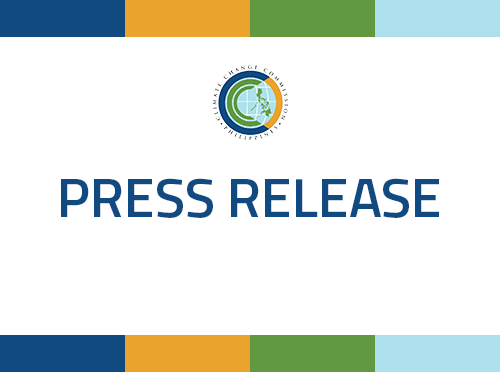
April 21, 2018 Saturday

April 21, 2018. On the second day of the Spring Meetings hosted by the World Bank Group (WBG) and International Monetary Fund (IMF) in Wasington, D.C., the Climate Change Commission (CCC) participated in a series of meetings that focused on gender, “blue economy,” carbon pricing, and disaster risk management.
Climate Change Commission Rachel Herrera represented the CCC in the meetings, together with Budget Secretary Benjamin Diokno serving as Head of Delegation and Senator Loren Legarda as Alternate Head of the Philippine Delegation, as well as other members of the Philippine Delegation.
“Our meetings for today focused on topics and issues that the Commission is very much concerned about. Climate change factors in all of these discussions, and therefore we could lead the conversation and learn from the experiences of other countries,” Herrera said.
The day started with the IMF Gender Coffee Chat: “Advocating for Women Empowerment: Voices from the Field,” with Senator Loren Legarda, as a panelist, discussing Philippine efforts to close the gender gap through landmark laws, such as the Magna Carta for Women, Anti-Violence Against Women and Children Act, Anti-Trafficking in Persons Act, Domestic Workers Act, Magna Carta for Micro, Small and Medium Enterprises (MSMEs), and Community Livelihood and Skills Training Act.
Herrera expressed that there is greater burden on women because of societal and cultural responsibilities and that there is unequal involvement in decision-making processes that hampers women participation in climate-related planning and implementation. She also mentioned that while women are more vulnerable than men in the context of climate change, women also do play a critical role in spurring and sustaining climate action.
This was followed by another high-level event, “Towards a Blue Economy: Concrete Actions for Addressing the Ocean Health,” which explored challenges and actions being done by countries to protect and rehabilitate marine ecosystems.
Legarda cited the dumping of plastic trash and sea level rise brought about by climate change as the main challenges facing our ocean health, which she hoped could be addressed by stricter enforcement of existing laws and programs, such as the Sustainable Coral Reef Ecosystem Management Program (SCREMP), Ecological Solid Waste Management Law, and related international treaties.
At the Third High Level Assembly (HLA) 2018 – Advancing Climate Action Through Carbon Pricing: Challenges, Opportunities, and Solutions organized by the Carbon Pricing Leadership Coalition (CPLC), the Philippine Delegation was able to learn about carbon pricing policies based on policy recommendations made by Atty. Christine Lagarde, Managing Director of the International Monetary Fund (IMF), who also emphasized the need to communicate the opportunities carbon pricing provides, which she estimated could increase a country’s GDP by one to 2%.
During the Technical Dialogue with the Philippines Delegation on Disaster Risk Management and Climate Change, Legarda shared how she had endeavored to transform our national budget into a climate budget for three years in a row, in her capacity as Chair of the Senate Committee on Finance. She noted that the next goal for the country is to transform our budget into a resilient budget.
“The meetings today certainly give us a lot of material and learning for our work back home. The discussion on carbon pricing, particularly, is relatively new to us and would definitely be helpful as we begin to craft our own. All this will help us fine-tune climate policies and programs for the Commission and the people it serves,” Herrera concluded.